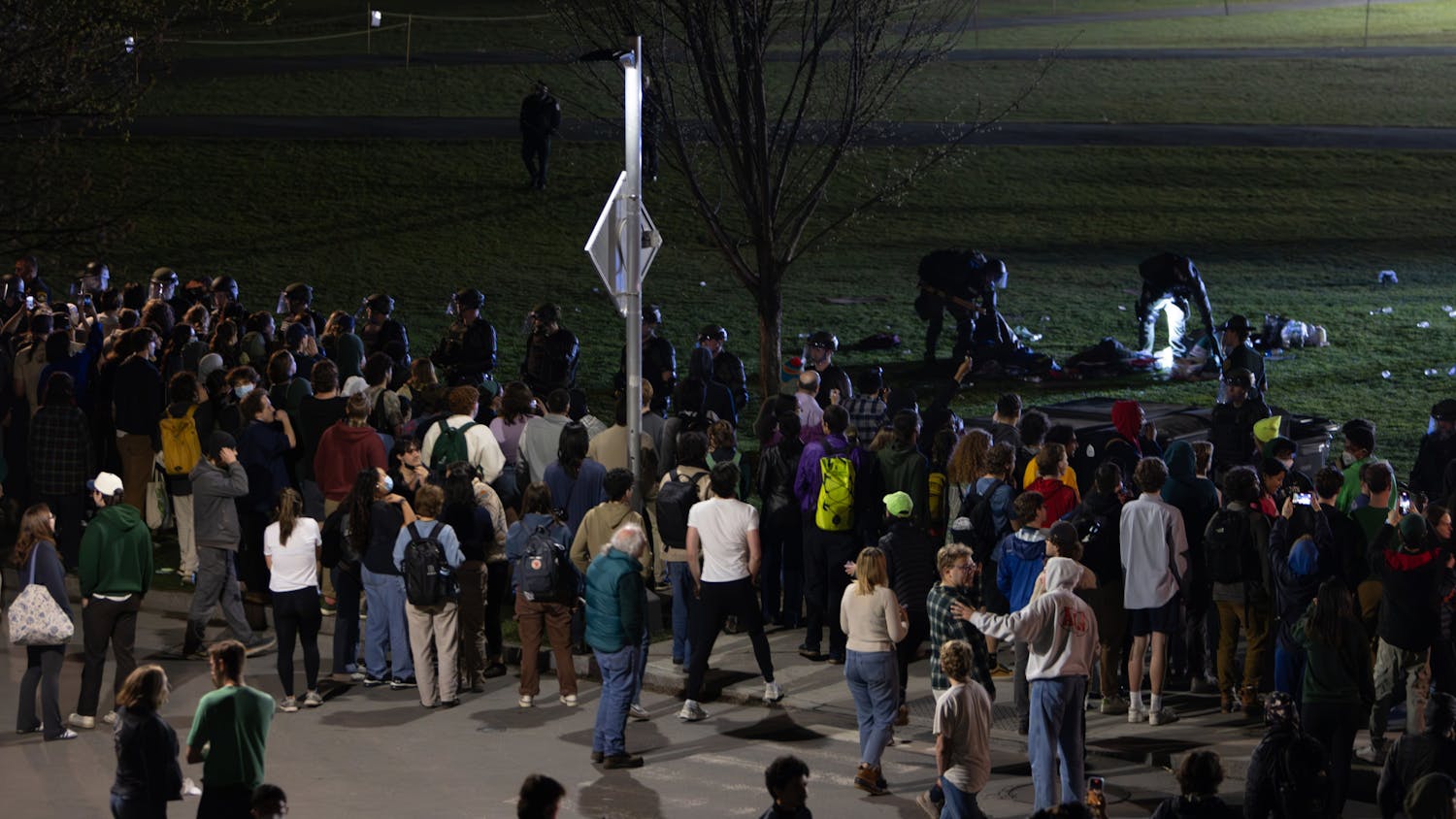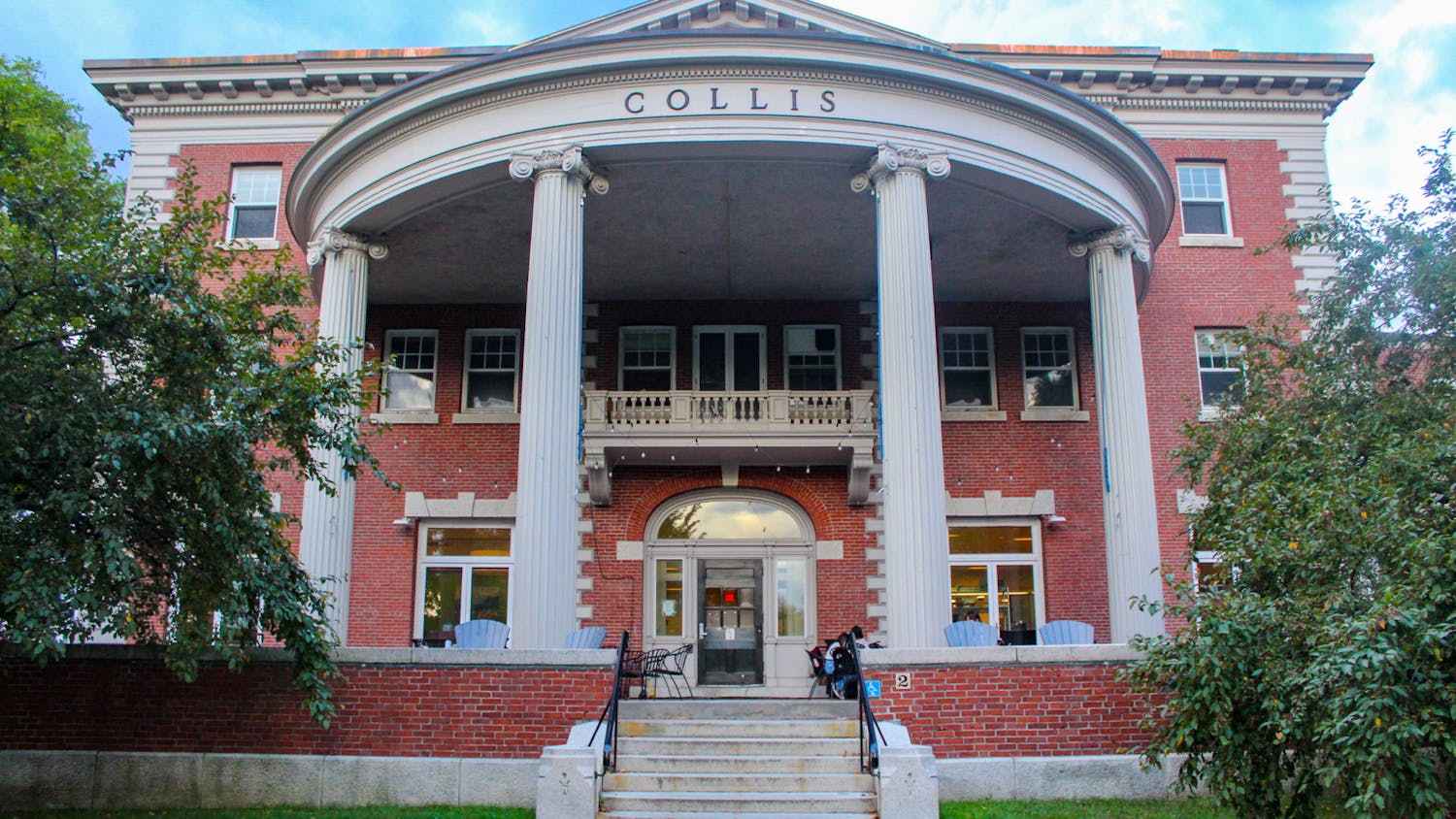The number of Good Samaritan calls made on behalf of freshmen during September 2013 is the same as September of last year, according to preliminary data analysis on the Good Sam policy under the new Greek Leadership Council freshman policy, director of health promotion and student wellness Aurora Matzkin said. The number of alcohol incidents reported by undergraduate advisors has also remained the same, she said.
The number of students reported with high blood alcohol levels for the College continued to decline this September, in keeping with a decline over the last several years, Matzkin said.
There was also a general decrease in the number of alcohol incidents at the College last month, but Matzkin cited a later start to the academic year and thus a shorter recording period this academic year as a possible explanation for this statistic
"Rumors start flying about Good Sams, and the College hears them, but is in this funny position where we cannot correct them because we can't release information," Matzkin said.
The Office of Institutional Research has not completed its data analysis for the month of September, which includes combining preliminary counts from different departments such as Judicial Affairs, Emergency Medical Services, Safety and Security and Health Services. In past years, monthly data about alcohol incidents has not been publicly released. Last month, the number of students reported with high BAC levels was so low that the College is federally prohibited from releasing the information because of patient privacy.
Matzkin did not define what a high BAC level is, but the threshold BAC for a student to be transferred to Dartmouth-Hitchcock Medical Center is 0.30.
Matzkin said the College has begun to utilize more data in forming its drinking policies in recent years.
"This work has been different in the last two years," Matzkin said. "We are now very intent on doing work that is evidence-based."
The College selects and drops strategies for combating alcohol abuse and improving health based on evidence gathered by the Office of Institutional Research.
The student health promotion and wellness department, a collaborator in the development of the GLC policy last year, has not yet determined if the policy has had an effect on freshmen safety.
"The research around how to reduce high-risk drinking all says to reduce access to alcohol," Matzkin said. "It is too soon to tell what the effect has been at Dartmouth."
Because many changes have been implemented this year, it is difficult to tell "what caused what." For instance, research on college students shows that people perceive there to be more drinking than what actually exists.
Freshmen UGAs and residents have had a mixed experience with the GLC freshman policy. Many cited concerns with unsafe in-dorm drinking or the tendency for students to pregame College-sponsored events such as the recent Timeflies concert or Collis After Dark events.
With the students having nowhere to go other than dorms, noise complaints have also been an issue for some dorm residents, particularly athletes who have early practices or games.
"Compared to my freshman floor there were definitely more in-dorm parties, a lot more hanging out in someone rooms and being loud and obnoxious," UGA Gustavo Muniz '16 said. "My residents talk about how they have gotten really drunk and have nowhere to go. They pregame-hopped and kept drinking and then the night ended badly because there was nowhere to go."
Other freshman UGAs have expressed confusion over the new GLC policy's purpose.
"I don't really know what it's trying to achieve," UGA Eli Turner '16 said. "If they're trying to make sure that more things are getting recorded and that freshmen are building stronger bonds within their floor or just as a class then I think it's working. If they're trying to keep kids out of trouble then I don't think it's working."
Maggie Leech '17 said that since freshmen are not surrounded by upperclassmen who have more experience with alcohol consumption, it is difficult for them to determine when to call for a Good Sam.
"Since it's all freshmen, the only available support are authority figures like UGAs or S and S officers who have associated with them the stigma of someone who could get you in trouble or bad guy' as opposed to upperclassmen who are on a peer level," she said.
Community Directors Katharina Daub and Josiah Proietti declined to comment. All other Community Directors of freshman residential clusters did not respond to requests for comment.
Leech is a member of The Dartmouth photography staff.



